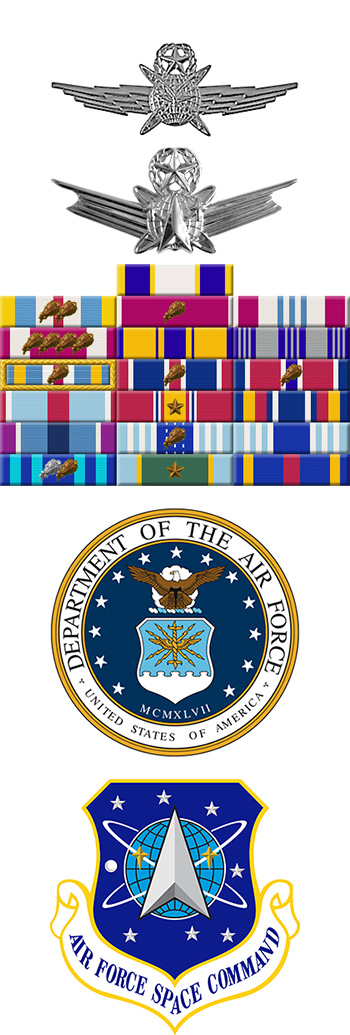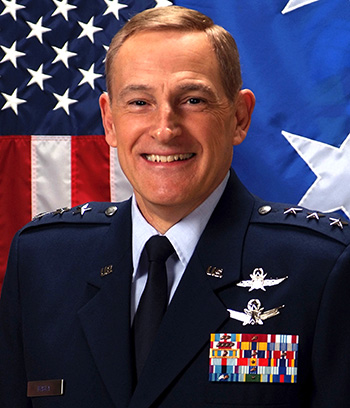
|
Michael J. Basla |
 |
|||
| Rank, Service | ||||
Lieutenant General O-9, U.S. Air Force |
||||
| Veteran of: | ||||
|
||||
| Tribute: | ||||
Mike Basla was born on July 12, 1952, in Syracuse, New York. After graduating from the University of New York with a bachelor of science degree in mathematics, he entered Officer Training School in December 1978, and was commissioned a 2d Lt in the U.S. Air Force at Lackland AFB, Texas, on March 20, 1979. Lt Basla next attended the Basic Communications-Electronics Course and Communications Computer Programming Course at Keesler AFB, Mississippi, from March 1979 to March 1980, followed by service as an Automatic Digital Network (AUTODIN) systems analyst and later as Chief of the AUTODIN Switching Center with the 2049th Communications Group at McClellan AFB, California, from March 1980 to November 1982. Capt Basla's next assignment was as Commander of Detachment 2 of the 2186th Communications Squadron at Menorca Radio Relay Location, Spain, from November 1982 to February 1984, followed by the Telecommunications Staff Officer Course at Keesler AFB from May 1984 to March 1985. He received an Air Force Institute of Technology assignment to the University of Southern Mississippi from March to August 1985, and then served as a command and control systems integrator and later as aide-de-camp to the Commander of Air Force Communications Command at Scott AFB, Illinois, from August 1985 to June 1988. Maj Basla served as Commander of the 2143rd Communications Squadron and Deputy Commander for Communications-Computer Systems with the 26th Training Wing at Zweibrucken AB, Germany, from July 1988 to July 1991, and then attended Naval War College at Newport, Rhode Island, from August 1991 to June 1992. Col Basla next served as an action officer with the Directorate of C4 Systems on the Joint Staff in the Pentagon from July 1992 to June 1995. He attended the Industrial College of the Armed Forces in Washington, D.C., from June 1995 to June 1996, and then served on the staff at Headquarters U.S. Air Force in the Pentagon from July 1996 to July 1998. His next assignment was as Commander of the 96th Communications Group at Eglin AFB, Florida, from July 1998 to April 2000, followed by service as Director of C4 Systems with Joint Task Force Southwest Asia in Riyadh, Saudi Arabia, from April 2000 to May 2001. He next served another tour at Headquarters U.S. Air Force from June 2001 to April 2002, and then served as Director of Communications and Information with Headquarters Air Mobility Command at Scott AFB, Illinois, from May 2002 to June 2004. Gen Basla's next assignment was as Deputy Director for the Operational Support Modernization Program with the Deputy Chief of Staff for Warfighting Integration at Headquarters U.S. Air Force from June 2004 to December 2005. From December 2005 to June 2007, he served as Director of Command, Control, Communications and Computer Systems with U.S. Transportation Command at Scott AFB, and then served as Vice Commander of Command, Control, Communications and Computer Systems on the Joint Staff at the Pentagon from June 2007 to August 2009. Gen Basla served as Vice Commander of Air Force Space Command at Peterson AFB, Colorado, from August 2009 to May 2012, and then as Chief, Information Dominance and Chief Information Officer in the Office of the Secretary of the Air Force in the Pentagon from June 2012 until his retirement from the Air Force on November 1, 2014. |
||||
|
||||

